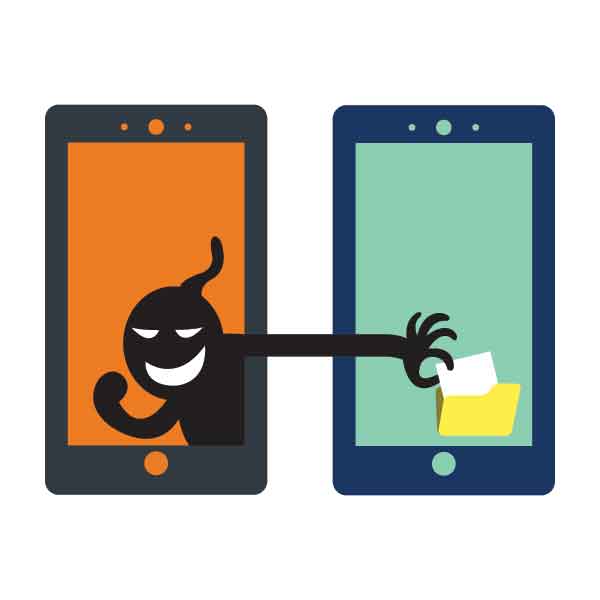
Google's Chinese web encryption is nothing more than PR and posturing
We are spied upon. Someone, somewhere, knows what you have been doing online. It might be your snooping friend taking a look at your browsing history, or it might be that weird looking guy on the next table in the coffee shop watching your every click. It might be advertisers using cookies, or it could be your own government. This is now just about expected; it is part and parcel of using the internet. In some parts of the world, access to the internet is not only monitored, but also restricted and controlled. But it didn’t used to be like this, and it needn't stay like this.
In some regions the idea of mass spying is a relatively recent concept. The activities of the NSA, GCHQ and other government organizations are something only the most recent generation of internet users is "used" to -- for the rest us, it is at best an unpleasant sea change, and at worst just the tip of the iceberg. As it was revealed that governments were not only spying on citizens' online activities but also getting other companies involved by requiring them to hand over user data, big names such as Microsoft, Google, and Apple were falling over themselves to appear to be going out of their way to reveal everything they could about the demands made of them. It was the PR machine in action, trying to make the best of a very, very bad situation.

Hey, Google! Please be open and honest with your search ads
It may not be a new season, but it's time for a Google makeover nevertheless. This time around it is the search results page that has been given a lick of paint, although you might be forgiven for not quite being able to put your finger on what's changed. You'll almost certainly notice that things look a bit different, but the details may escape you. The changes were put in place yesterday, having been heralded on Google+ by Google search designer Jon Wiley who explains that the subtle changes are to bring the desktop look more in line with that used on mobile devices.
The size of search result titles has been boosted, and the underline that was present has now been removed. Wiley says that "we've […] evened out all the line heights [which] improves readability and creates an overall cleaner look". This all sounds great in principle. After all, as Wiley points out, it helps to make "the multi-device experience more consistent". But it also ushers in a few concerns.

Google Drive price cut gives a little and takes a lot
This week, World Wide Web inventor Tim Berners-Lee calls for a "bill of rights" for the Internet. Much of the media coverage focuses on governments, but I see corporations as greater concerns. Who has more direct access to your stuff? Google is front and center, but by no means alone, profiting from your content.
Today's big Google Drive price cut -- $1.99 and $9.99 monthly down from $4.99 and $49.99 for 100GB and 1TB, respectively -- makes me wonder. The search and information giant offers more value for less money. The question: Who benefits more? Customers paying less, or Google getting their business? I have to wonder when, if not already, the company will use contextual data gathered from your Drive for targeted everything, from Now to ads and more.

Eek! Android WhatsApp database can be stolen and shared by other apps
The Android version of WhatsApp, the cross-platform messaging tool recently snapped up for $19 billion by Facebook, contains a security flaw that means its chat database could be accessed by any app and uploaded to a web server without user knowledge or intervention. It's not clear whether this vulnerability has yet been exploited, but a proof-of-concept attack by Bas Bosschert (consultant, sysadmin and entrepreneur) shows that it is not only possible, but also incredibly simple. To cut to the chase, the answer to the question posed by Bas' brother, "is it possible to upload and read the WhatsApp chats from another Android application?", is "yes, that is possible".
In order for an "attack" to be successful, a user must have granted the app access to the SD card. As Bas points out, "since [a] majority of the people allow everything on their Android device, this is not much of a problem" for an attacker to overcome. Assuming this setting has been enabled, there really is very little work to be done. With a webserver at hand, it is quite easy to create an app that seeks out WhatsApp's database and uploads it ready for perusal.

A digital bill of rights is essential to the future of democracy
If there was ever anyone more qualified to talk about the web than Tim Berners-Lee, I would like to meet them. The man responsible for inventing the World Wide Web (a heavy burden for anyone to carry, I'm sure) joins us today in celebrating the 25th anniversary of the web.
But the big news isn't that Berners-Lee has been able to watch his baby grow up, go through a difficult teenage stage and flourish into adulthood, bringing us up to the quarter century the web has been with us. The real news is the inventor of the web calling for a "digital bill of rights".

Europol warns users of WiFi hotspot security risks
Europol, the law enforcement agency for the European Union, is warning that people should exercise extreme caution when using WiFi hotspots when out and about. Citing an increase in the number of "man-in-the-middle" attacks on such connections, the head of Europol's cybercrime division, Troels Oerting, said that public WiFi connections are being used to "steal information, identity or passwords and money from the users who use [them]". The advice is to not necessarily stop using public networks, but to avoid using them for anything that involves transmitting personal data.
Singled out for particular attention is online banking, which Oerting suggests people should do "from home where they know actually the wi-fi and its security" rather than in a coffee shop. Europol is currently working with several member states of the European Union following an increase in the number of WiFi network attacks.

Cover up your bits! Vine bans porn
The internet is awash with porn. If you want to find something a little titillating, have a taste for the weird, or just want some good old fashion hardcore, you don’t have to look too far to satiate that desire. But if you have been looking to Vine to get your kicks -- and seriously, there must be some better places to look! -- you're going to have to turn your attention elsewhere, as a complete porn ban has been put in place.
It does not matter if you want to share porny videos of yourself with a loved one privately, everything that falls into the category of "Pornography and Sexually Explicit Content" is outlawed. Vine's terms of service state in no uncertain terms that "You may not post Content that... Is pornographic or sexually explicit", and the Vine Rules make it abundantly clear what is permitted and what is not.

Yahoo and BlackBerry worm further into your life with mobile ads
There are few people who like ads. Sure, they can be works of art -- certainly there are some advertisements that are infinitely better than a lot of the dirge pumped out by television networks -- but while advertisements on television can be fairly easily avoided (thank you TiVo -- other PVRs are available!) it is a different matter on a computer or mobile device. "Opting" to watch a mindblowing ad for Apple, Guinness or Honda is one thing, but to have unavoidable -- and usually crappy -- advertisements forced upon you whilst browsing the web or using an application is an entirely different matter.
There are groups of people who are happy to endure these adverts because they fund apps, and make it possible for developers to provide their hard work free of charge -- you may fall into this group and have perhaps been able to configure an automatic ad filter for your eyes. But there are larger legions for whom ads are just plain, damned irritating. In some instances it is possible to pay to avoid them, but this is not always the case. If BlackBerry and Yahoo get their way, advertisements are going to become rather more noticeable.

UK's Optic Nerve program spied on millions of Yahoo users' video chats -- found porn
It sounds like something from a James Bond film -- or something from a creepy news story about a landlord stalking one of his tenants -- but the headline relates to a real story. We're all only too aware of the activities of the NSA and other governmental agencies monitoring the telephone and internet activities of people around the world, but the latest revelations see things taking a turn for the seriously sinister.
The UK intelligence agency GCHQ, between 2008 and 2010, tapped into the webcam chats of millions of Yahoo users.

Europe calls for less US influence over the internet
The US is used to being a dominating force in the world -- this is true in sport, politics, economics, and many other areas -- but the European Commission thinks there should be less US influence over the internet. There are concerns about the level of control the United States has over the technologies and protocols that underpin the internet. One area for concern is ICANN which operates on behalf of the US government yet exerts control over procedures that have global effects.
There is also concern that Europe does not currently have enough sway over the internet. Neelie Kroes, commissioner in charge of telecommunications policy, said: "Europe must contribute to a credible way forward for global internet governance. Europe must play a strong role in defining what the net of the future looks like."

KeePass introduces new auto-key sending engine, improves entry attachment handling
Dominik Reichl has released KeePass 2.25 for Windows. The open-source password management tool allows users to manage both offline and online passwords via a secure, encrypted container, and is also available in portable form.
Version 2.25 is a minor update, but introduces a new auto-type key sending engine that improves support for sending Unicode characters as well as sending keypresses into virtual machine and emulator windows.

10 ways Facebook has annoyed the world
Facebook is celebrating its 10th birthday and will no doubt be looking back in glee at its meteoric rise and bountiful first decade. But it’s not all been clear sailing for the social network giant.
In the 10 years that Facebook has grown from a project in a student room at Harvard University to a multi-million-pound business with 1.23 billion monthly users, it has sparked controversy and mixed opinions.

Google releases details of FISA data requests -- for what it's worth
Trying to claw back its reputation of not being evil, and riding the wave of public interest in the surveillance activities of the government, Google releases some additional details about the government data requests it has received. Just last week, the Department of Justice announced that companies would be permitted to reveal more information about the requests made of them. Google has now updated its Transparency Report to include statistics about Foreign Intelligence Surveillance Act (FISA) requests.
Until recently, Google and other companies had been blocked from revealing any information about FISA data requests, causing them to group together to file a lawsuit in a bid to overturn this barrier. Today's report released by Google follows on from last week's agreement with the DoJ and includes details of requests made under the Foreign Intelligence Surveillance Act. For advocates of government transparency this sounds like a victory for freedom of information, but sadly it amounts to very little.

Android location app tackles snooping fears
University researchers have developed an app that can reveal when others are tracking your location amid growing concerns that many people are oblivious to their data being accessed.
More than a third of Android apps can track and record your location yet some are doing so without disclosing it, security company Bitdefender has revealed.

The Internet gets a win! Microsoft, Google and others allowed to disclose US Government requests
When the Prism and NSA scandal was unearthed and brought to light by Edward Snowden, the internet died a little. I still remember reading the news and being heartbroken that my own government was spying on me by forcing companies to secretly disclose information.
In June of 2013, Microsoft and Google filed lawsuits to gain the ability to disclose the details of these information requests. Today the internet scores a victory -- the shackles have been loosened, and the gags removed from these companies and others like them.